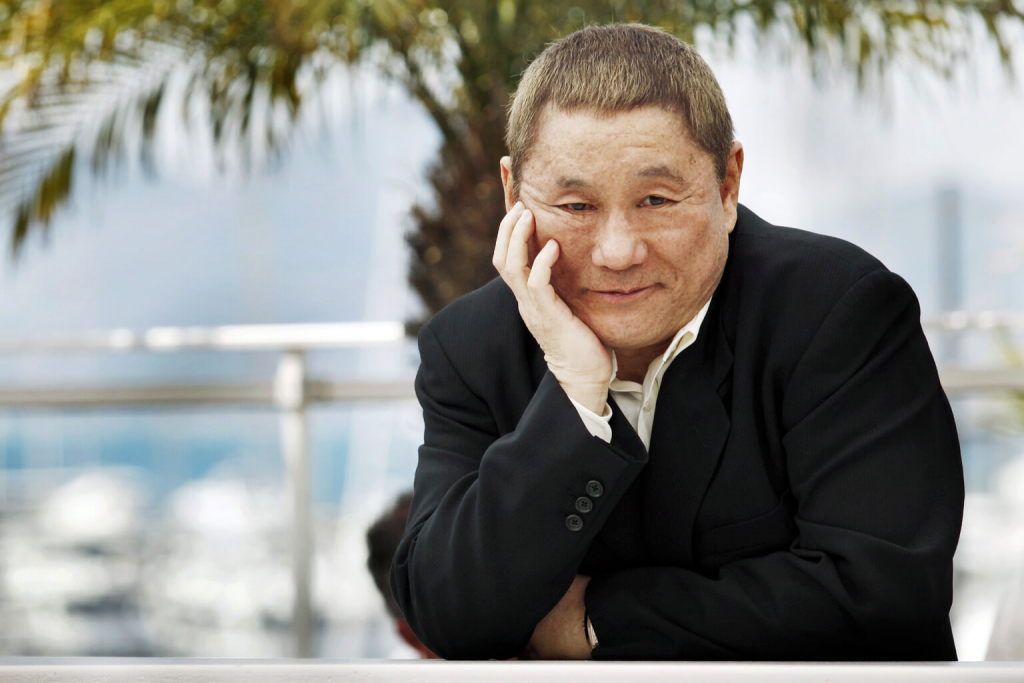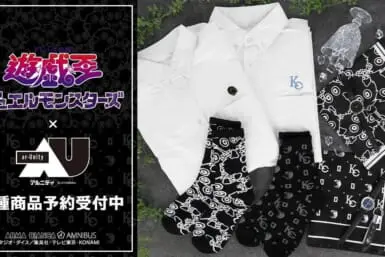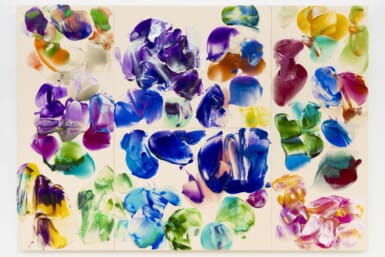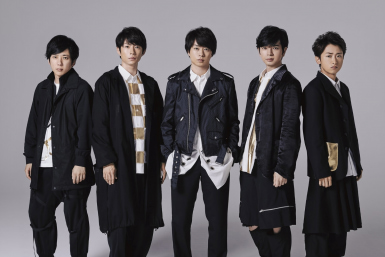In this month’s List of 7, we look at some of the biggest celebrity scandals that shocked Japan from the last four decades. We begin with an incident that destroyed the music careers of five idols before they’d even finished high school.
Smoking Idols
High school girls caught smoking in the 1980s doesn’t sound like a major news story. Yet, when it comes to pop idols in Japan, agencies like to paint their clients as having clean-cut images, particularly the younger ones. So, when five of the 11 members of Onyanko Club were seen puffing on cigarettes by paparazzi in 1985, it caused quite a stir. The picture appeared in weekly magazine Shukan Bunshun less than three weeks after the group debuted on television. A sixth member, Aki Kihara, was also in the picture, but denied smoking and subsequently stayed with the group. The other five were dismissed.
More than three decades later, Mamiko Tomoda, one of the members of the so-called smoking club, spoke publicly about the incident for the first time on the TBS variety show Bakusho! The Friday. She said the girls were relaxing in a coffee shop without noticing what was around them. A man suddenly came up, took the picture and ran off. They tried to chase him but he got away. According to the program, Tomoda was scheduled to be the main vocalist for the group’s debut song. Instead, her music career was over before it had really started. Onyanko Club, meanwhile, went on to become one of the biggest pop groups of the decade.
Kitano and Co. Attack Friday
A revered director and one of the so-called “Big Three” television comedians in Japan, Takeshi Kitano has always courted significant media attention. In December 1986, the man also known by his stage name of Beat Takeshi, felt that scrutiny went too far. The weekly gossip magazine Friday, published a story about a reported affair the then 39-year-old was having with a college student. The journalist allegedly physically harmed the woman while trying to get her to speak. The entertainer felt the magazine was harassing his alleged mistress and his family.
Kitano subsequently plotted his revenge. Along with 11 members of his famous army of comedians known as “Gundan,” Kitano burst into the Friday offices and started wreaking havoc. The group attacked reporters, damaged several items and sprayed fire extinguishers indiscriminately before getting arrested. Kitano was sentenced to six months in jail. Friday made a statement, claiming the assault was a violation of the freedom of the press. The publication received little sympathy, however. It was criticized for how it handled the story, leading to a decline in the magazine’s circulation.
Matsuda and Kondo’s Alleged Affair
Akina Nakamori and Seiko Matsuda were Japan’s biggest selling musical acts of the Showa Era (1926-1989). The media tried to portray the pair as major rivals, with the former seen as mature and rebellious in contrast to Matsuda’s sweet-natured image. There was actually no bad-blood between the two, though, until 1989, when Matsuda was spotted on what looked like a date with another big star of the 1980s, Masahiko Kondo (also known as Matchy). Since 1983, he’d been in a relationship with Nakamori and previously cheated on her with iconic Canto-pop singer, Anita Mui.
The alleged affair with Matsuda, though, was too much for Nakamori to bear and she attempted to take her own life. Fortunately, she survived, but then had to sit through the ordeal of an intrusive press conference. In front of a golden screen, which usually indicates a wedding engagement announcement, Nakamori apologized for her actions while Kondo shamelessly plugged his upcoming projects. He was painted as the country’s biggest love-rat, while her career never really recovered. Though she denied the affair, Matsuda’s wholesome persona was damaged. It would get worse in 1997 when an American male dancer accused of her sexual harassment.
Johnny’s Dark Side
As president of the most powerful talent agency in Japan, Johnny Kitagawa stopped at nothing to protect his idols from receiving bad press. Criticism could lose media outlets access to the agency’s biggest names and most weren’t prepared to take that risk. Shukan Bunshun has always been different, though. In 2000, the tabloid magazine ran with a story targeting not a Johnny & Associates idol, but the head honcho himself. The publication ran a 10-part series accusing Kitagawa of sexually abusing young boys who’d previously worked for him.
The story was based on the accounts of 12 former Johnny & Associates members, who said they were abused as minors. All spoke on condition of anonymity. Kitagawa avoided a criminal investigation as the statute of limitations had passed. He then sued the magazine for defamation of character on eight counts. The lower court ruled in his favor on four, before reversing its decision relating to the sexual exploitation of adolescents. Similar allegations had previously been made by ex-Johnny Jr.’s talent, Junya Hiramoto and Four Leaves’ member Koji Kita. The former claimed Kitagawa washed boys’ backs during communal bath time, while the latter said he operated a casting couch.
Nori-P Arrested on Drug Charges
There have been a number of drug scandals involving Japanese celebrities in recent years, leading to the arrests of big names such as Yusuke Iseya, Erika Sawajiri and Shigeaki Miyazaki (commonly known as Aska). The story that probably surprised the public the most, though, centered around Noriko Sakai. Nicknamed Nori-P, she was extremely popular from the late ‘80s onwards due to her saccharine ballads and innocent image. For that reason, she was probably one of the last celebrities you would have expected to see being charged for possession of stimulant drugs.
That’s what happened, though, in the summer of 2009. After her husband, Yuichi Takaso was arrested for possession, he told the police he and Sakai were involved with drugs. A search of her apartment turned up a small amount wrapped in aluminum foil. After dropping off her 10-year-old son with a friend, Sakai briefly went on the run before turning herself in. At her court case, over 6,600 people lined up, hoping to get one of the 20 seats in the gallery. She was sentenced to a suspended 18-month prison term. The singer returned to the entertainment industry in 2012.
Shimada’s Yakuza Links
One of Japan’s most popular presenters and comedians, Shinsuke Shimada seemed untouchable. He was embroiled in several controversies throughout his career, yet remained a permanent fixture on Japanese television. Even after assaulting one of his female employees in 2004 (he said he slapped her once, she claimed he punched her several times and spat on her), he still returned to host some of the country’s biggest shows. Many felt that incident should have ended his career in the entertainment industry. Instead, the final nail in the coffin came seven years later thanks to a series of text messages linking him with the yakuza.
The messages in question exposed his relationship with Hirofumi Hashimoto, the fourth most powerful leader of the Yamaguchi-gumi. The comedian turned to Hashimoto via his ex-boxer friend, Jiro Watanabe, to try to get him out of trouble with ultra-nationalists for a joke he made comparing the imperial family’s chrysanthemum crest to an anus. The two then became close. “I felt indebted to him,” said Shimada at press conference following the revelations. “I didn’t feel like I was doing anything wrong. To me the relationship was safe, but I learned the day before yesterday it wasn’t.” It ended his television career.
Japanese Beethoven Exposed as a Fraud
Mamoru Samuragochi was previously revered as one of this country’s greatest ever composers by both critics and the public. The supposedly “deaf” musician, labeled by Time magazine as the “Digital-age Beethoven,” was credited with works such as the stirring “Hiroshima Symphony No.1” for victims of the nuclear blast in 1945. He was also known for composing the soundtracks of high-profile video games like Resident Evil. With Olympic bronze medal-winning figure skater Daisuke Takahashi set use his composition of “Sonata for Violin” at the 2014 Sochi Games, Samuragochi’s career seemed to be going from strength to strength. Then the truth came out.
Not only was Samuragochi not deaf, he also hadn’t written most of his seminal songs. At a press conference at Tokyo’s Hotel New Otani in February 2014, Takashi Niigaki, a part-time lecturer at the Toho Gakuen School of Music, revealed that he had been responsible for composing the music. “I couldn’t bear the thought of skater Takahashi being a co-conspirator in our crime,” said Niigaki. He added that Samuragochi had been exaggerating his deafness to enhance his Beethoven-esque reputation. Samuragochi later admitted that while his hearing was impaired, it didn’t meet the legal requirements for deafness.
Feature image by Andrea Raffin via Shutterstock









